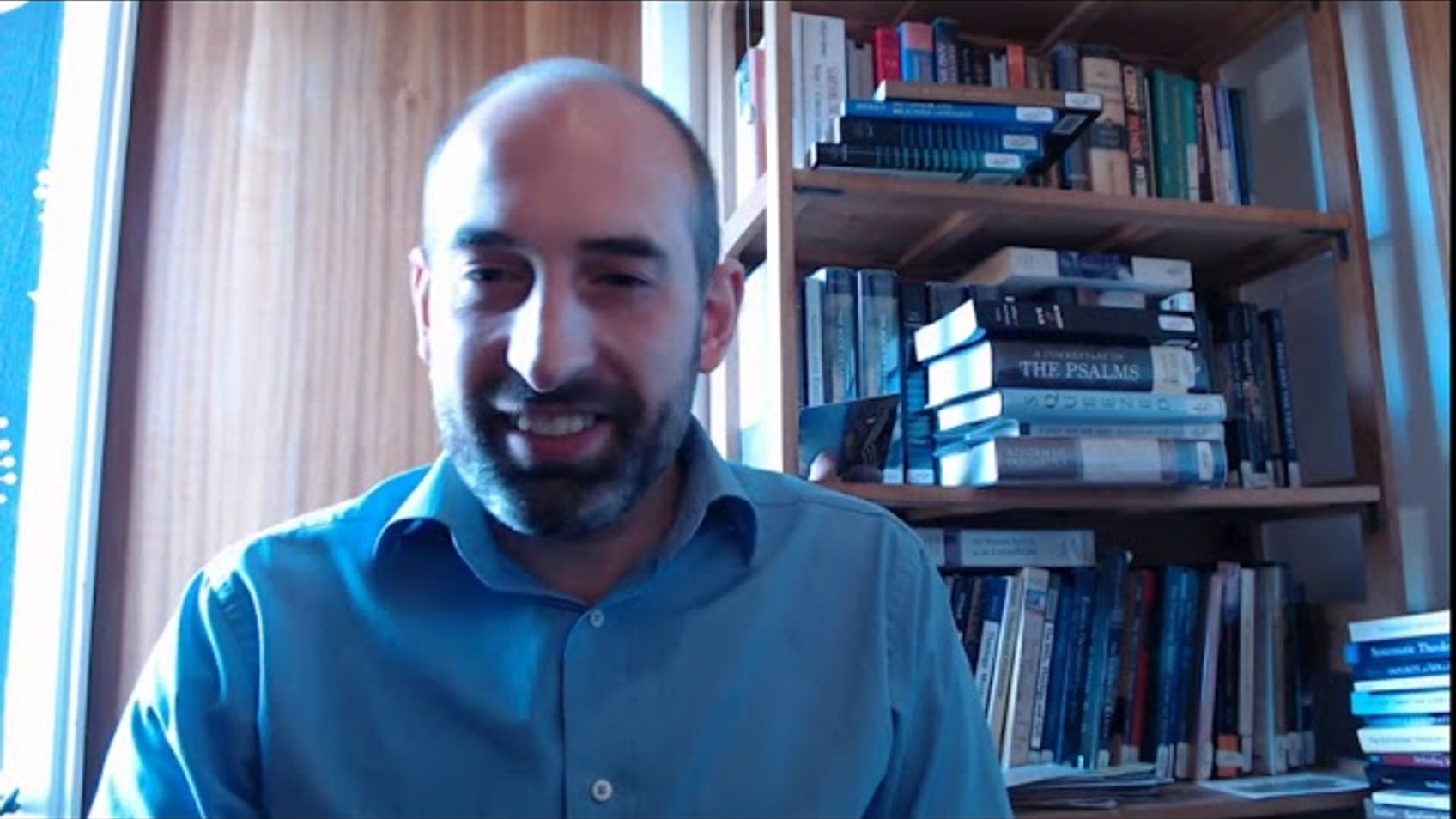Q&A#59 More on My Writing and Reading Habits
September 27, 2018

Alastair Roberts
Today I answer a couple of questions following on from my previous video (https://www.youtube.com/watch?v=DsmZBUscO9U), about my reading and writing practices.
If you have any questions, you can leave them on my Curious Cat account: https://curiouscat.me/zugzwanged.
If you have enjoyed these videos, please tell your friends and consider supporting me on Patreon: https://www.patreon.com/zugzwanged.
My new Soundcloud account is here: https://soundcloud.com/alastairadversaria. You can also listen to the audio of these episodes on iTunes: https://itunes.apple.com/gb/podcast/alastairs-adversaria/id1416351035?mt=2.
More From Alastair Roberts
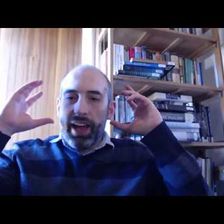
Q&A#60 Wittgenstein and Baptism
Alastair Roberts
September 28, 2018
Today's question: "What do philosophers like Wittgenstein and Rorty have to teach us about baptism and meaning?"
If you have any questions, you can l
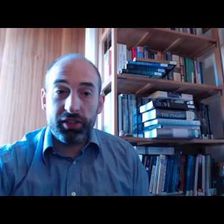
Q&A#61 What's the Deal with the Weird Healing Pool in John 5?
Alastair Roberts
September 29, 2018
Today's question: "What's going on in John 5 with the pool at Bethsaida? Was there a magical healing pool? Does Jesus sanction this healing method? If
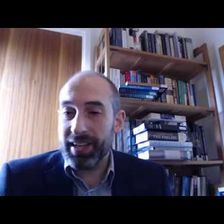
Q&A#62 Thinking Well about our Disagreements
Alastair Roberts
September 30, 2018
Today's question asks about ways that we should think about our disagreements in the Church.
Within the video, I reference my video on the Statement
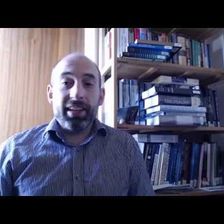
Q&A#58 My Library and Reading Habits
Alastair Roberts
September 26, 2018
Today I respond to a questioner asking for a tour of my bookshelves. You don't get the tour (sorry!), but I do share a bit about my library and readin
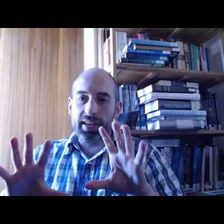
Q&A#57 Gender Segregation?
Alastair Roberts
September 25, 2018
Today's question: "In relation to your "Paul Maxwell on Masculinity" video, I definitely have observed the beneficial impact that working together see
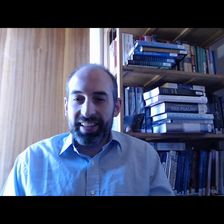
Q&A#56 Paul Maxwell on Masculinity
Alastair Roberts
September 24, 2018
Today I am giving my thoughts on Paul Maxwell's discussion of masculinity here: https://selfwire.org/article/crisis-masculinity-postmodern-age.
If yo
More on OpenTheo

How Could the Similarities Between Krishna and Jesus Be a Coincidence?
#STRask
October 9, 2025
Questions about how the similarities between Krishna and Jesus could be a coincidence and whether there’s any proof to substantiate the idea that Jesu

Why Do We Say Someone Was Saved on a Particular Date If It Was Part of an Eternal Plan?
#STRask
November 24, 2025
Questions about why we say someone was saved on a particular date if it was part of an eternal plan, the Roman Catholic view of the gospel vs. the Bib

Is It Possible There’s a Being That’s Greater Than God?
#STRask
February 5, 2026
Questions about whether it’s possible there’s a being that’s greater than God and that’s outside of God’s comprehension and omniscience, and how to ex

Did Jesus Prove He Wasn’t Sinless When He Overturned the Tables?
#STRask
December 29, 2025
Questions about whether Jesus proved he wasn’t sinless when he overturned the tables, whether Jesus’ response to the Pharisees in Mark 3:22–26 was a b

Can You Recommend Good Books with More In-Depth Information and Ideas?
#STRask
January 22, 2026
Questions about good books on Christian apologetics, philosophy, and theology with more in-depth information and ideas, and resources to help an intel

The Making of the American Mind with Matthew Spalding
Life and Books and Everything
February 2, 2026
The United States is unique in how much attention it pays to its founding, its founders, and its founding documents. Arguably, the most famous and mos

Why Should We Pray If God Already Knows What’s Going to Happen?
#STRask
January 29, 2026
Questions about why we should pray if God already knows what’s going to happen, how the effectiveness of prayer is measured, and whether or not things

Prove to Me That Jesus Is Not a Created Being
#STRask
January 26, 2026
Questions about why we should think Jesus is not a created being, and what it means to say God became fully human if part of being human means not bei

What About Those Who Never Heard the Name of Jesus?
#STRask
December 22, 2025
Questions about what will happen to those who never heard of Jesus or were brought up in a different faith, whether there’s biblical warrant to think

How Do I Determine Which Topics at Work Are Worth Commenting On?
#STRask
January 5, 2026
Questions about how to determine which topics at work are worth commenting on, and a good way to respond when you’re in a group Bible study and hear e

Why Does the Bible Teach You How to Be a Proper Slave Owner?
#STRask
November 13, 2025
Question about why it seems like the Bible teaches you how to be a proper slave owner rather than than saying, “Stop it. Give them freedom.”
* It s

Does Open-Mindedness Require Studying Other Religions Before Becoming a Christian?
#STRask
February 9, 2026
Questions about the claim that if Christians really want to be open-minded, they need to read and study other religions before committing to Christian

Did God Create Us So He Wouldn’t Be Alone?
#STRask
November 3, 2025
Questions about whether God created us so he wouldn’t be alone, what he had before us, and a comparison between the Muslim view of God and the Christi

Can You Provide Verifiable, Non-Religious Evidence That a Supernatural Jesus Existed?
#STRask
November 10, 2025
Question about providing verifiable, non-religious evidence that a supernatural Jesus existed.
* I am an atheist and militantly anti-god-belief. Ho

How Do We Advocate for Christian Policy Without Making the Government Interfere in Every Area of Life?
#STRask
November 20, 2025
Questions about how to advocate for Christian policy without making the government interfere in every area of life, and the differences between the mo
